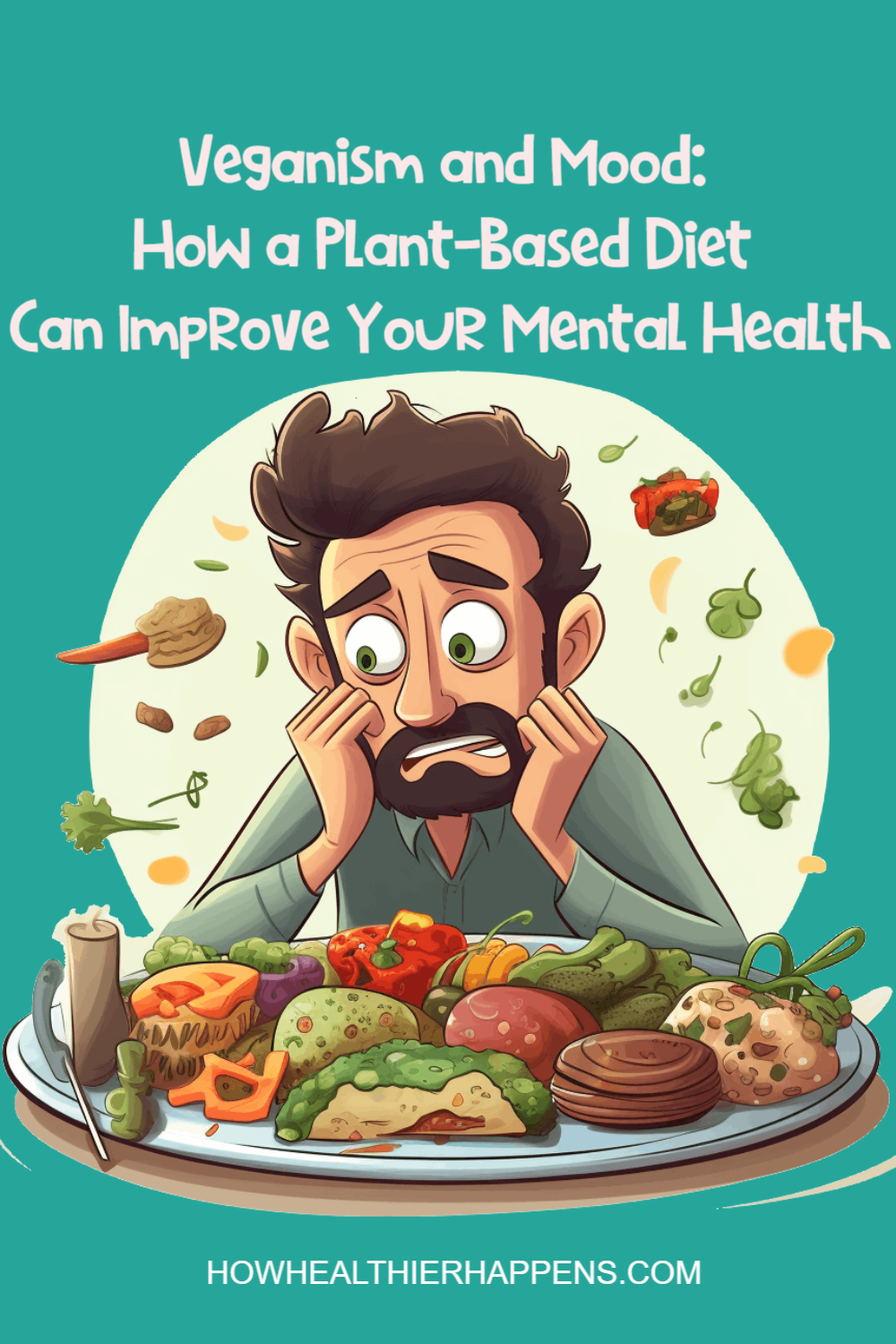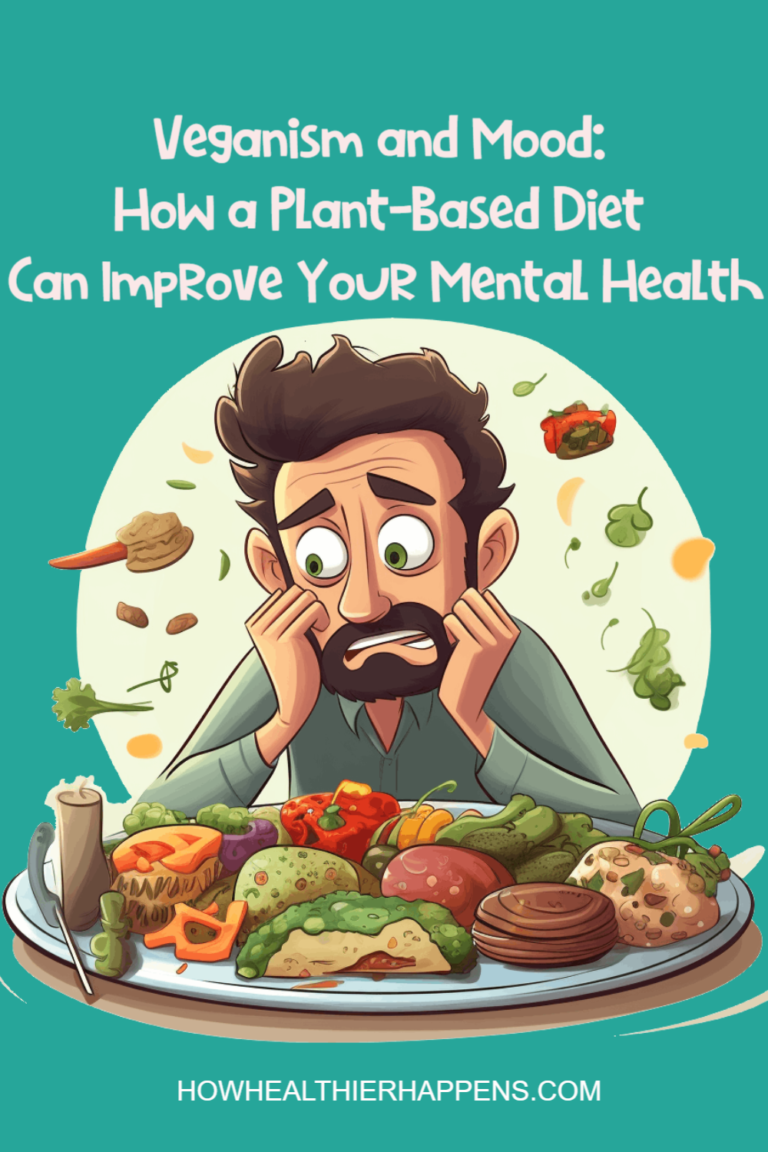
Veganism is a lifestyle and dietary choice that has gained increasing popularity in recent years. The term “vegan” is used to describe individuals who do not consume any animal products, including meat, dairy, eggs, honey, and other animal-derived ingredients.
At its core, veganism is based on the ethical belief that animals should not be exploited or harmed for human consumption. This means that vegans not only avoid consuming animal products but also refuse to wear or use any products made from animals, such as leather, fur, and wool.
The vegan lifestyle has been associated with a number of health benefits, including lower risk of chronic diseases such as heart disease, type 2 diabetes, and some types of cancer. Additionally, many people choose to adopt a vegan diet for environmental reasons, as animal agriculture is a leading cause of greenhouse gas emissions and deforestation.
Despite its many benefits, veganism is not without its challenges. It can be difficult to find vegan-friendly options when eating out, and it requires careful planning to ensure that the diet includes all necessary nutrients. However, with the growing availability of vegan products and the wealth of resources available for new vegans, it has become easier than ever to live a plant-based lifestyle.
Overall, veganism is a lifestyle choice that offers a range of benefits for both individuals and the environment. Whether you are interested in adopting a vegan diet for health, ethical, or environmental reasons, there are a number of resources available to help you make the transition and enjoy all the benefits that a plant-based lifestyle has to offer.
Exploring Mental Health and our Diet
Mental health is a crucial aspect of overall wellbeing, yet it is often overlooked or neglected in our society. Mental health refers to our emotional, psychological, and social well-being, and it plays a critical role in our ability to function in daily life, form meaningful relationships, and achieve our goals.
Good mental health is not just the absence of mental illness; it is a state of positive mental wellbeing that allows us to cope with the challenges of life and thrive in our personal and professional lives. It involves being able to manage stress, form positive relationships, maintain a sense of purpose and meaning, and enjoy life to the fullest.
When our mental health is compromised, it can have a profound impact on our physical health, relationships, work performance, and overall quality of life. Mental health problems can lead to depression, anxiety, substance abuse, eating disorders, and other serious conditions that require professional help to overcome.
It is important to prioritize mental health and take steps to maintain good mental wellbeing. This may involve seeking out professional support, practicing self-care and stress management techniques, engaging in regular exercise, building a supportive social network, and finding activities that bring joy and meaning to our lives.
In our fast-paced and demanding world, it is easy to neglect our mental health and prioritize other aspects of our lives. However, by making mental health a priority and taking active steps to support our emotional wellbeing, we can enjoy greater happiness, resilience, and fulfillment in all areas of our lives.
The Relationship Between Diet and Mental Health
The old adage “you are what you eat” has taken on a new meaning in recent years as researchers have begun to explore the complex relationship between diet and mental health. The food we consume has a profound impact on our physical health, and it also plays a critical role in our emotional wellbeing and mental health.
Studies have shown that individuals who consume a balanced and varied diet that includes plenty of fruits, vegetables, whole grains, and lean protein are more likely to experience positive mental health outcomes. A diet that is high in processed foods, refined sugars, and unhealthy fats, on the other hand, has been linked to an increased risk of depression, anxiety, and other mental health problems.
One of the key ways in which diet affects mental health is through its impact on gut health. Our gut is home to trillions of microorganisms, collectively known as the microbiome, which play a critical role in regulating our immune system and producing neurotransmitters that affect mood and behavior. A diet that is high in fiber and plant-based foods, for example, can promote the growth of healthy gut bacteria, leading to reduced inflammation and improved mental health outcomes.
Another way in which diet affects mental health is through its impact on nutrient levels in the body. Deficiencies in certain nutrients, such as omega-3 fatty acids, B vitamins, and vitamin D, have been linked to an increased risk of depression and other mental health problems. By ensuring that our diet includes a variety of nutrient-rich foods, we can support our mental health and reduce the risk of these conditions.
It’s also worth noting that the relationship between diet and mental health is a two-way street. While a poor diet can increase the risk of mental health problems, individuals who are experiencing stress, depression, or other mental health conditions may also be more likely to make unhealthy food choices. Addressing mental health concerns and seeking professional support may be an important part of improving dietary habits and overall wellbeing.
The Nutritional Benefits of a Plant-Based Diet
As interest in plant-based diets continues to grow, more people are recognizing the many nutritional benefits of a diet that is based on whole, plant-based foods. Whether you are a vegan, vegetarian, or simply looking to incorporate more plant-based foods into your diet, there are many reasons to consider making the switch.
Here are some of the key nutritional benefits of a plant-based diet:
Rich in nutrients – A diet that is based on whole, plant-based foods is rich in a wide variety of essential vitamins, minerals, and nutrients that are necessary for optimal health. Fruits, vegetables, whole grains, legumes, nuts, and seeds are all packed with vitamins, minerals, and antioxidants that support overall health and wellbeing.
High in fiber – Plant-based foods are naturally high in fiber, which is essential for healthy digestion and can help lower cholesterol, regulate blood sugar levels, and promote a healthy weight.
Low in saturated fat – Animal products are typically high in saturated fat, which can contribute to heart disease and other chronic health conditions. Plant-based foods, on the other hand, are generally lower in saturated fat and high in healthy fats such as omega-3 fatty acids.
Supports a healthy weight – A plant-based diet is naturally low in calories and high in fiber, which can help support healthy weight loss and maintenance. This can help reduce the risk of obesity and other chronic health conditions.
Reduces the risk of chronic disease – A plant-based diet has been linked to a reduced risk of chronic diseases such as heart disease, type 2 diabetes, and certain types of cancer. This may be due to the high levels of antioxidants and other nutrients found in plant-based foods.
Supports gut health – Plant-based foods are high in prebiotics and other nutrients that support a healthy gut microbiome. This can help reduce inflammation, boost immune function, and support overall health.
How Are the Nutrients Found in a Vegan Diet Help With Mental Health
There is a growing body of research showing that the nutrients found in a plant-based diet can have a positive impact on mental health. Here are some ways that the nutrients in plant-based foods can support emotional wellbeing:
Omega-3 fatty acids – Omega-3 fatty acids are essential for healthy brain function and have been linked to a reduced risk of depression and other mental health problems. Plant-based sources of omega-3s include flaxseeds, chia seeds, hemp seeds, walnuts, and algae-based supplements.
B vitamins – B vitamins play a critical role in regulating mood and brain function. A diet that is rich in whole grains, leafy greens, and legumes can provide the B vitamins necessary for optimal mental health.
Magnesium – Magnesium is an essential mineral that is necessary for healthy brain function and the production of neurotransmitters that regulate mood. Plant-based sources of magnesium include leafy greens, nuts, and whole grains.
Antioxidants – Antioxidants found in plant-based foods, such as vitamin C, vitamin E, and beta-carotene, can help reduce inflammation and oxidative stress in the brain, which may contribute to the development of mental health problems.
Fiber – Fiber is essential for healthy digestion and can help regulate blood sugar levels and reduce inflammation, both of which can affect mental health.
Phytochemicals – Plant-based foods are rich in phytochemicals, which are natural compounds that have been shown to have a range of health benefits, including reducing inflammation and protecting against oxidative stress.
Common Challenges People Face When Switching to a Plant-Based Diet
Switching to a plant-based diet can be a great way to improve your health, reduce your environmental impact, and support animal welfare. However, it can also be challenging, especially if you are used to eating a lot of animal products. Here are some common challenges people face when switching to a plant-based diet, and how to overcome them:
Cravings – It’s normal to crave the foods you’re used to eating, and cutting out animal products can be a big change. To help with cravings, try finding plant-based alternatives to your favorite foods, such as vegan burgers, tofu scrambles, and plant-based cheeses.
Social pressure – It can be hard to stick to a plant-based diet when everyone around you is eating differently. To overcome social pressure, try bringing your own plant-based meals to social events or finding vegan-friendly restaurants in your area.
Lack of knowledge – If you’re not used to cooking with plant-based ingredients, it can be overwhelming to know where to start. To overcome this, try following plant-based recipe blogs or attending a cooking class to learn new techniques.
Nutrient deficiencies – Cutting out animal products can make it harder to get certain nutrients, such as vitamin B12 and iron. To ensure you’re getting enough of these nutrients, consider taking supplements or incorporating fortified plant-based foods into your diet.
Budget – Some plant-based foods, such as vegan meat substitutes and organic produce, can be more expensive than their animal-based counterparts. To overcome this, try buying in bulk, shopping in season, and buying from local farmers.
Time constraints – Preparing plant-based meals can take longer than simply cooking a piece of meat, and it can be hard to find time to meal prep. To overcome this, try preparing meals in advance, using quick and easy plant-based recipes, or buying pre-made plant-based meals from the grocery store.
Switching to a plant-based diet can be a big change, but with some preparation and effort, it can also be a rewarding and fulfilling way to improve your health and support the planet. By taking steps to overcome common challenges, you can make the transition to a plant-based diet more seamless and enjoyable.
Tips for Overcoming Common Challenges When Switching to a Plant-Based Diet:
Cravings – Instead of focusing on what you can’t have, focus on the wide variety of plant-based foods you can enjoy. Experiment with new flavors and ingredients, and try finding plant-based versions of your favorite foods. If you’re craving something specific, try making a healthier plant-based version at home.
Social pressure – Be open and honest with your friends and family about your decision to switch to a plant-based diet. Bring your own plant-based dish to events, or suggest vegan-friendly restaurants to dine at together. Remember that it’s okay to stick to your values and beliefs, even if they differ from others.
Lack of knowledge – Take advantage of online resources, such as plant-based recipe blogs, YouTube cooking channels, and Instagram accounts that focus on plant-based eating. Consider attending a cooking class or a local plant-based meetup group to learn new techniques and connect with others who share your interests.
Nutrient deficiencies – Educate yourself on the specific nutrient needs of a plant-based diet, and consider working with a registered dietitian to ensure you’re getting all the nutrients your body needs. Incorporate fortified plant-based foods, such as soy milk and nutritional yeast, into your meals, and consider taking supplements if necessary.
Budget – Look for budget-friendly plant-based protein sources, such as beans, lentils, and tofu. Consider buying in bulk and stocking up on non-perishable items, such as grains and legumes. Shop in season and look for deals at your local farmers’ market.
Time constraints – Meal prep can be a lifesaver when you’re short on time. Set aside a few hours each week to prepare meals in advance, or use quick and easy recipes that can be made in under 30 minutes. Buy pre-cut vegetables and pre-cooked grains to save time, and consider investing in kitchen tools, such as a food processor or Instant Pot, to make cooking easier and faster.
Remember that transitioning to a plant-based diet is a journey, and it’s okay to make mistakes along the way. Take it one step at a time, and be patient and kind to yourself. With time and effort, you’ll find that plant-based eating becomes second nature, and you’ll be reaping the many health and environmental benefits that come with it.
In conclusion, a plant-based diet offers many nutritional benefits that can positively impact both physical and mental health. By incorporating a variety of whole, plant-based foods, individuals can ensure they are getting essential vitamins, minerals, and nutrients that support brain function and overall well-being.
Key nutrients found in plant-based foods, such as omega-3 fatty acids, B vitamins, and antioxidants, have been linked to improved mental health outcomes, including reduced risk of depression, anxiety, and cognitive decline. Additionally, the fiber and nutrient-dense nature of plant-based foods can support healthy digestion and weight management, further contributing to optimal physical and mental health.
While switching to a plant-based diet may present some challenges, such as cravings, social pressure, and nutrient deficiencies, individuals can overcome these barriers by experimenting with new foods, seeking out plant-based resources and support, and being patient and kind to themselves throughout the transition.
Overall, a plant-based diet offers a wealth of nutritional benefits that can support optimal physical and mental health. By incorporating a variety of whole, plant-based foods into one’s diet, individuals can nourish their bodies and minds while also contributing to a more sustainable and compassionate food system.








